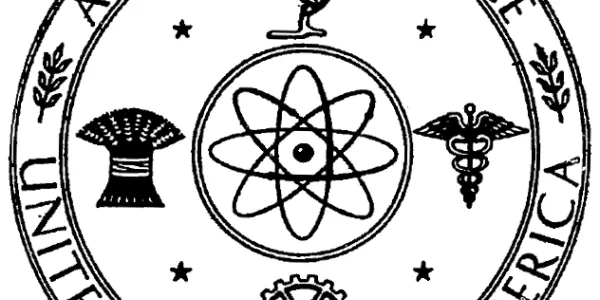By Ngaesai |
<div>I kept asking</div>
<div>I was wondering</div>
<div>Who should decide</div>
<div>Sufficiency of living.</div>
<div> </div>
<div>Yes!
</div>
By Supalak Ganjanakhundee |
<div>Basically, ordinary people might love to have the right to choose their own representatives to sit in the top jobs in the country. Therefore, elections matter. It is strange to see a certain group of people in Thailand has come out to show their resolve against elections, on the ground that the poll might not bring ‘good’ people into governance. </div>
<div> </div>
<div>While an election would not bring good people or even democracy to the politics, authoritarians in Southeast Asia indeed need elections to justify their governance.
</div>
By Piyabutr Saengkanokkul |
<div><em>In the past week, news broke that Piyabutr Saengkanokkul, Assistant Professor at the Faculty of Law, Thammasat University and a member of Nitirat (a group of Thammasat law professors who offer academic legal advice to society), would take a step back from academia and into politics by founding a new political party with Thanathorn Juangroongruangkit.
</em></div>
<div><p>The movement against the ruling junta has been reignited after the recent protests calling for elections at the MBK department store and the Democracy Monument, but the public seems to be overlooking one of its primary goals, which is to stop the junta from staying in power.</p><p> </p><div>Since late January, the group of activists called the Democracy Restoration Group (DRG) have staged three political activities, which have led to the prosecution of over 70 individuals.</div></div>
By Harrison George |
<p><em>News item:</em></p>
<p>National Security Council (NSC) secretary-general Wallop Raksanoh has “pledged to go after those who are financially supporting pro-election activists”. General Wallop pledged to “hunt down those who are the backers of the group,” saying that the “activists would not pose such a major problem if people were not egging them on.”</p>
<p><em>The scene: A meeting room at the National Security Council, where the Egging On Investigation Team is reporting its findings.</em></p>
<p>So, have you interrogated all the suspects?</p>
<p>Yes, sir. 59 of them.</p>
By Hara Shintaro |
<div>Hara Shintaro compares 2 anti-social organisations: the Japanese yakuza and the Muslim Malay insurgents in Thailand's Deep South. </div>
<p></p>
By Pavin Chachavalpongpun |
<div>Japan’s diplomatic ambition to compete with China in maintaining its foothold in Thailand seems soon to fizzle out following the failure to reach a deal on a high-speed train project between the Japanese and Thai governments.
</div>
By John Draper |
<div>Just this week, the Trump administration announced via its Nuclear Posture Review that it will be seeking to develop <a href="https://www.theguardian.com/us-news/2018/jan/09/us-to-loosen-nuclear-weapons-policy-and-develop-more-usable-warheads">‘useable’ nuclear weapons</a>. The administration’s strategists are reportedly considering their potential use in a first or retaliatory strike in areas such as the Russian-Ukraine frontier and in a North versus South Korea / US conflict.
</div>
By Nidhi Eoseewong |
<div>No matter who says that elections are only a tradition or full of corruption, before 1958 Thai elections gave necessary legitimacy to political power for 25 interrupted years, even though after that the army seized power and suppressed election after election for many years. However, after the 14 October incident, elections once again returned as the backbone of political legitimacy. The army used other methods to interfere in politics while accepting elections for example, by having a Senate with tremendous power but appointed, or pressuring political parties into supporting a prime minister from the army.</div>
<p></p>
By Keiko Sei |
<div> </div>
<div> </div>
<div><img alt="" src="https://c1.staticflickr.com/5/4760/40396881561_2c04211c2e_o.jpg" /></div>
<div><span>The approved identity of Thai Lawyers for Human Rights (TLHR) from Design & People. (Designer: Santosh Kangutkar, Mumbai)</span></div>
<div> </div>
<div>Thos who admire the work of Thai Lawyers for Human Rights (TLHR) and also those who need their help must have noticed the new identity of the Thailand-based organisation.
</div>
By Adam John |
<div>“The absence of a united women’s coalition hinder[s] a collective and strategic effort to call for inclusive and gender-sensitive peacebuilding”, argues Firdaus Abdulsomad in her Master’s thesis entitled ‘Women’s participation in the Patani Peace Process : a case study of the barriers to women’s participation in building peace in Patani’ which can be read <a href="http://www.scriptiesonline.uba.uva.nl/sv/scriptie/640110">here</a>. </div>
<div> </div>
<div>Firdaus Abdulsomad who identifies herself as “a second generation Patani Malay who grew up in Sweden” undertook her fieldwork r
</div>
By Abu Hafez Al-Hakim |
<div><em>Abu Hafez Al-Hakim is a spokesperson of MARA-Patani, a leading insurgent movement in Muslim Malay-majority southern Thailand and is a member of MARA Patani's Dialogue Panel in the Peace Dialogue Process with the Thai government </em></div>
<div>
</div>


